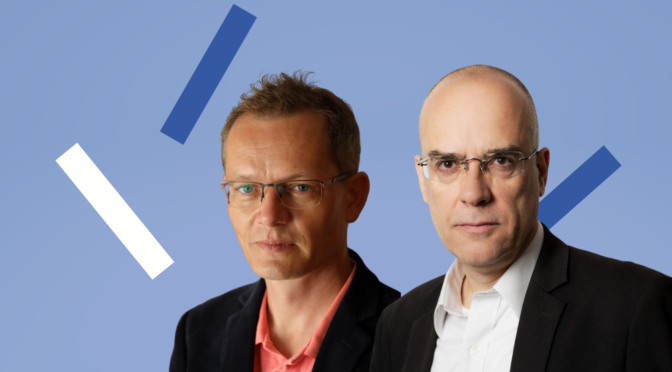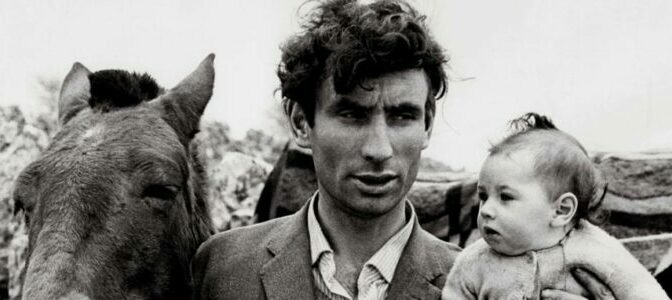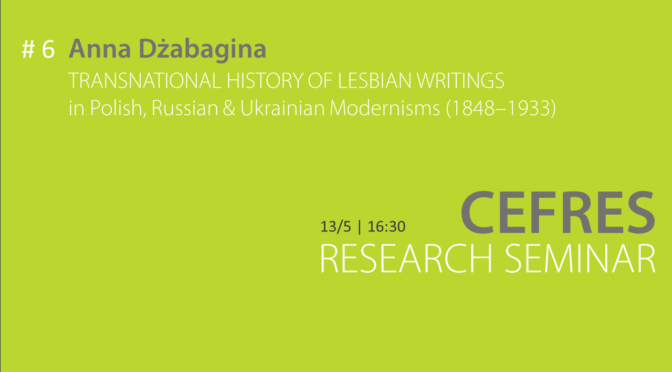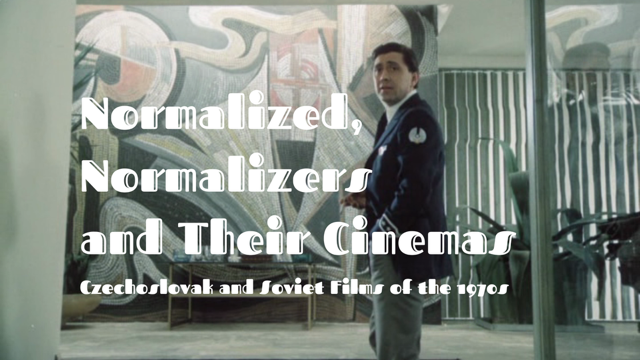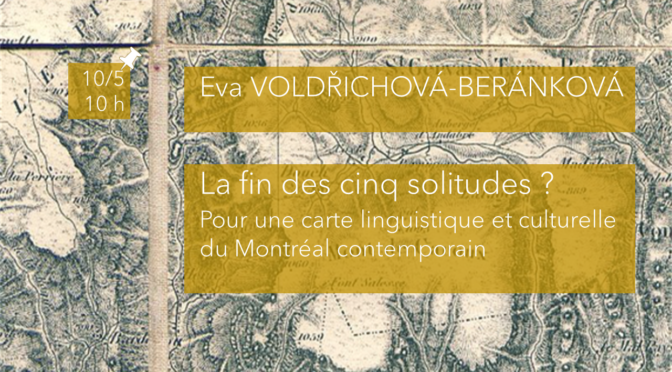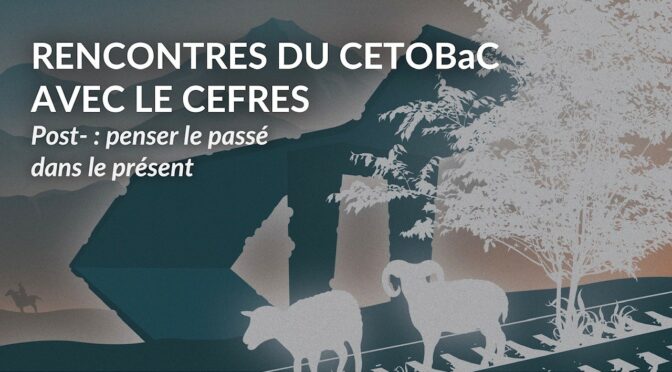CEFRES-CETOBaC Workshop
CEFRES společně se svou Platformou, jejíž součástí je Univerzita Karlova a Akademie věd ČR, pořádá jednodenní workshop, který bude hostit partnerská organizace CETOBaC v Campus Condorcet v Paříži 26. dubna 2024.
Datum: 26. dubna 2024, 9:00 – 19:00 CET
Místo: CETOBaC, Campus Condorcet, 14, cours des humanités, Aubervilliers (bâtiment Recherche Nord, místnost 0.010)
Jazyk: English, French
Organizátoři: Mateusz Chmurski (CEFRES), Lucie Drechselová (CETOBaC, EHESS), Fabio Giomi (CETOBaC, EHESS)
Partnerské instituce: CETOBaC, EHESS, CEFRES
Program
9:00 – 9:15 – Greeting word
09:15 – 09:30 – Introduction
Marc Aymes, Center for Turkish, Ottoman, Balkan, and Central Asian Studies (CNRS / EHESS, CETOBaC)
Mateusz Chmurski, French Center for Research in Social Sciences (CEFRES)
09:30 – 11:00 – ‘Post-’. Thinking the Present Through the Past
Moderator: Emmanuel Szurek (EHESS, CETOBaC)
- Adrian Brisku (Charles University / Ilia State University), Imperial Political-Economic Legacies in New (Inter)national Economic Order: Albania, Czechoslovakia, and Georgia’s Foreign Trade Discourse and Policy after the Great War
- Václav Šmidrkal (Czech Academy of Sciences / Charles University), ‘Post-’ and ‘Trans-’: the Legal Status of World War II veterans in Czechia after 1989
- Jelena Božović (CEFRES / Charles University), Languages in a post-conflict multiethnic society: The interplay of official and unofficial policies in Bosnia and Herzegovina
11:00-11:30 – Break
11:30-13:00 – Memories. Reflecting on the Past in the Present
Moderator: Lucie Drechselová (CETOBaC, EHESS)
- Marie Černá (Czech Academy of Sciences), The Czechoslovak Prague Spring of 1968 from the point of view of local communist actors
- Anna Huláková (Charles University), Situated Knowledge, Feminist Frameworks of Analysis and Women’s Representation in the Post-Soviet Central Asia
- Camille Leprince (EHESS, CETOBaC), La guerre d’Espagne comme représentation de l’escalade de violence en Syrie
13:00-14:30 – Lunch break
14h30-16h00 – Reflecting on Genocidal and Mass Violence: Yesterday, Today
Moderator: Xavier Bougarel (CNRS, CETOBaC)
- Elif Karakaya (Rochester University / CETOBaC), Unfinished Empire: Place and Memory in Post-Ottoman Visual Art
- Kateřina Králová (Charles University), Holocaust Ruins: Ethnography of Hirsch quarter in Thessaloniki
- Özgür Sevgi Goral (Gerda Henkel Stiftung / CETOBaC), Our Wound Runs Deep: Colonial Aphasia and the Memory Field in Turkey
16:30-18:00 – Behind the Scenes of Political Documentaries
Moderator : Ilshat Saetov (EHESS, CETOBaC)
Screening of Robert Mihály, The Best Corner in the World (2022), 25’, and screening and discussion with the director Sibil Çekmen, On the Trail of Missing Documentaries (in preparation in 2024), 14’.
18:00 – Closing cocktail
Abstrakt
Centrum tureckých, osmanských, balkánských a středoasijských studií (CETOBaC) pařížské École des Hautes Etudes en Sciences Sociales (EHESS) zkoumá historii a současnost turecky mluvícího obyvatelstva v současném Turecku a v regionech, které kdysi tvořily součást Osmanské říše a ve Střední Asii. Výzkum centra se netýká pouze samotných obyvatel, ale také jejich vztahů se sousedy v rámci sociálních, kulturních a politických otázek. V některých výzkumech rozšiřuje CETOBaC svoje pole výzkumu nejen na východ o Írán, Afghánistán a Čínu ale také směrem na západ o střední a východní Evropu. CETOBaC sdružuje historiky, sociology, antropology, geografy, lingvisty a politology v šesti výzkumných oblastech: dějiny Osmanské říše; současné Turecko; Balkán v současnosti; Střední Asie a Kavkaz; jazyky, kultura a společnost v tureckém regionu; islám a súfismus.
CETOBaC každoročně pořádá setkání s výzkumnou institucí, která sdílí podobné vědecké zájmy: díky tomu umožnuje vědcům diskutovat o výzkumu Balkánu, Turecka, Osmanské říše a Střední Asie v mnoha oblastech.
Workshop CEFRES-CETOBaC bude v roce 2024 strukturován do tří hlavních témat:
1. Postosmanské, posthabsburské a postsocialistické pojetí minulosti v současnosti
Společně prozkoumáme dědictví, které nám zanechala velká impéria, jež měla zásadní vliv na střední a východní Evropu v 19. a 20. století. Zvláštní pozornost budeme věnovat tomu, jak ovlivnila společenskou strukturu a také jak utvářela pojetí společenských věd. Budeme se zabývat otázkami: Jak přemýšlet o kategoriích vícenásobného „po-„? Jak konstruujeme vnímání těchto kategorií? První část se bude zabývat institucionalizací „kulturní oblasti“ ve Francii a ve střední a východní Evropě, v rámci formování znalostí. Tato sekce navazuje na úspěšnou spolupráci, kterou zahájila Lucie Drechselová během své stáže v CEFRESu v září 2023 a jejímž výsledkem byl doktorandský workshop s názvem Dynamika politické účasti: disciplinární poznání skrze prizma „teritoriálních studií.
2. Paměťová studia
Druhá část dne bude úzce souviset s první částí. Její součástí jsou zejména paměťová studia. Cílem je podnítit dialog o současném výzkumu věnovaném utváření, uchovávání, předávání, zpochybňování a zapomínání individuální a kolektivní paměti. Budeme se zabývat rovněž tím, jak je připomínána, interpretována a vykládána minulost, stejně tím, jak probíhá usmiřování a uzdravování ve společnostech poznamenaných konflikty. V této sekci se také budeme z několika úhlů pohledu zabývat opakujícím se tématem „nostalgie“, která se v mnoha kontextech objevuje v postsovětském a postosmanském prostoru a v menší míře i v bývalém Československu.
Budeme se zabývat rovněž tím, jak je připomínána, interpretována a vykládána minulost, stejně tím, jak probíhá usmiřování a uzdravování v poválečných společnostech poznamenaných konflikty.
3. Sociální vědy v ohrožení
Třetí část dne bude mít podobu kulatého stolu a zaměří se na problémy, jimž čelí sociální vědy ve Francii, ve východní Evropě a v Turecku. Budeme diskutovat o kombinaci důsledků snižování finančních prostředků a vládních rozhodnutí, které omezují akademickou svobodu, kontrolují témata výzkumu, nebo omezují šíření potenciálně politicky znepokojivých výsledků. Po této debatě bude následovat promítání dokumentárního filmu.

